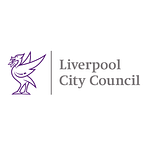“I was ashamed to have post-natal depression”
Sue Finnegan, Head of Commercial and Marketing for Culture Liverpool lost three stone and struggled to sleep and eat after the birth of her second child…
“It was 5:30am and I awoke with a tightness in my chest, gasping for breath. I crept downstairs, opened the back door and sat outside in my PJs.
My mum came downstairs to find out what was going on. ‘I think I’m going to pass out mum, it’s my heart — it’s going really fast.’
I was 15 and this was my first panic attack. I thought I was dying.
I lived at home with my mum, dad and sister. Dad had retired from the Merchant Navy early, through ill health. His diabetes meant he was at home on dialysis, awaiting a kidney transplant and deteriorating by the day.
Over the next 12 months, panic attacks became a regular feature of my life. They could happen at any moment, which made me fear them even more. It was a vicious cycle — worrying about having an attack would bring one on. I was prescribed beta-blockers and researched coping mechanisms. Within a year, I was off the medication and the anxiety stopped. My lovely dad had the transplant he needed but sadly his liver failed and he passed away. We were heartbroken.
Fast forward to 2016 and I’d given birth to my second daughter Emma. Life couldn’t have been better. I had an amazing husband, a great job, fab friends, stability and family support. I remember singing and dancing around the kitchen with my two girls thinking to myself how lucky we are.
Then, overnight, the anxiety came back.
It brought with it thoughts of worthlessness, guilt, fear and obsessive compulsive behaviour. I sank into a three month long post-natal depression. I stopped eating and sleeping and withdrew from my friends and family.
I lost three stone. I was a zombie. I couldn’t even pick out the ingredients in the shops to cook a meal, never mind attempt to cook it. Then at its worst, I developed post-natal psychosis.
I felt so embarrassed and ashamed. Only my immediate family knew and my boss [Director Claire McColgan] — who was amazing and quietly supported my husband in the background.
Desperate to get better, I took myself off to the doctors. I was scared of telling the truth. I broke down and was referred immediately to the crisis team, where a psychiatrist diagnosed a severe case of post-natal depression — one of the worst he’d ever seen. A cocktail of heavy drugs, therapy, daily visits from community workers and my family and friends rallying round got me back on my feet.
Within 12 months, I’d come off all the tablets and support therapy — where they’d identified a strong hereditary link — both my mum and nana’s sister had suffered from this terrible disease.
How my husband coped, I have no idea. He was truly amazing. It was hard for him to get his head around his wife being depressed. I don’t think he thought I would recover. It still makes me choke up thinking about the tears falling down his face as we sat together with the psychiatrist.
Three months after my recovery, I was back at work, as planned, at the end of my maternity leave — as though nothing had happened. Fortunately, most women who experience post-natal depression, with no past history, make a full recovery and never experience it again. I count myself very lucky. The support I had from family, the medical professionals and community workers was amazing.
It’s important for me to speak out. We have to get better about being honest and open about our mental health. I hope telling my story helps others.
A year before my ‘out of the blue’ breakdown, a young woman walked out of a maternity ward in her bare feet with her newborn baby. She walked to a cliff top and never came home.
We have to do everything in our power to make sure this never happens again and show each other you can make a full recovery from the darkest and loneliest of places.”
Further help and resources
Postnatal depression — NHS advice
The Association for Post-Natal Illness
